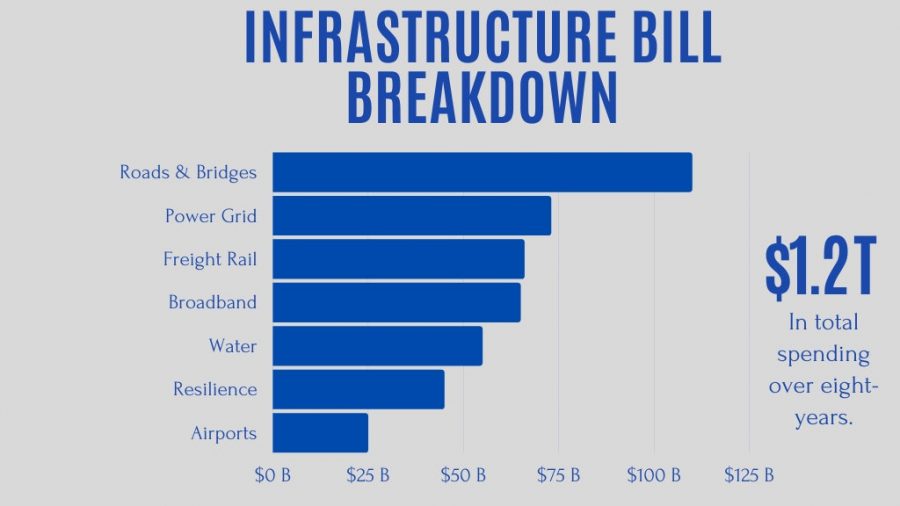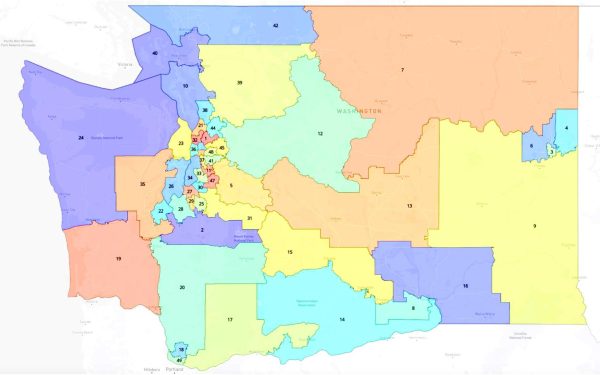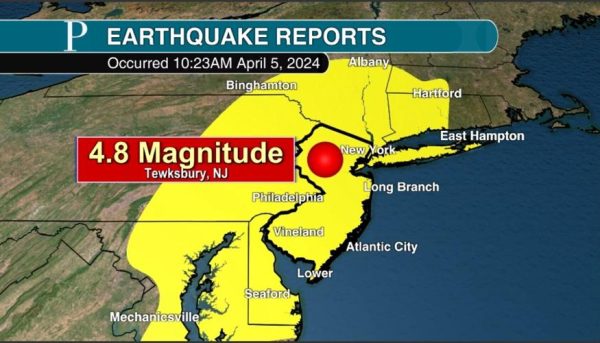Biden Passes US Infrastructure Bill. What Does This Mean for Us?
December 14, 2021
As a part of his economic agenda, Biden passes yet another bill, this time, one including 1.2 trillion dollars. As a major and generous investment in the country’s infrastructure and economy, the Infrastructure Deal will improve transportation, crumbling infrastructure, internet, water access, and more. Let’s take a look at the details of the US Infrastructure Bill.
The US Infrastructure Bill is designed to ameliorate US infrastructure over a period of 5 years by making changes in many departments. Our nation’s infrastructure currently has a C rating from ASCE, something which Biden aims to improve upon. The bill calls for improvement of the nation’s road system to improve efficiency, strength, and safety by rebuilding the most economically significant bridges and roads as well as thousands of others that are in poor condition. According to the White House, 23%, or 173,000 miles of the nation’s highways as well as 45,000 bridges are in need of repair. The bill allocates $40 billion for bridge repairs as well as 16 billions for other projects too large to be handled by traditional funding programs. The package includes $11 billion to improve transportation safety and to decrease the number of lethal transportation-related incidents happening every year.
To improve public transit, the bill allocates $11 billion, which will be used to modernize public transportation with eco-friendly vehicles that will contribute to the fight against climate change. It will also provide $7.5 billion for zero-emission vehicles that the government plans to distribute across the country. The $7.5 billion allocated for zero-emission vehicles will include building a network of EV chargers that will encourage people to use electric vehicles and reduce air pollution. The deal invests $66 billion in passenger and freight rail as well as an additional $12 billion in partnership grants. To improve the nation’s supply lines and to lessen the number of disruptions, the US Infrastructure Deal also invests $17 billion in port infrastructure and $25 billion in airports, which will reduce the effect on the environment, reduce congestion, improve supply lines, and stimulate growth and commerce.
The US Infrastructure Deal will also fund the largest investment in clean, renewable energy. The deal grants $65 billion to improve the energy transmission grid which will improve efficiency and encourage the use of renewables. Biden also hopes that this investment will save the US money long term as it loses $70 annually due to power outages. The new bill also issues $21 billion to clean up Superfund and brownfield sites as well as other areas suffering from pollution. The $21 billion will go towards ecological rehabilitation as well as an increase in jobs and environmental justice. To reduce casualties and damages due to natural disasters such as droughts and floods, the bill also administers the largest investment in the resilience of infrastructure against extreme weather events in American history. The bill sets aside $50 billion to protect against disaster in order to make communities safer.
The US legislation plans to pay for the bill using different methods, and none of them include raising taxes. Instead it will repurpose unused funds as well as add billions of dollars to the deficit over a period of 10 years.









